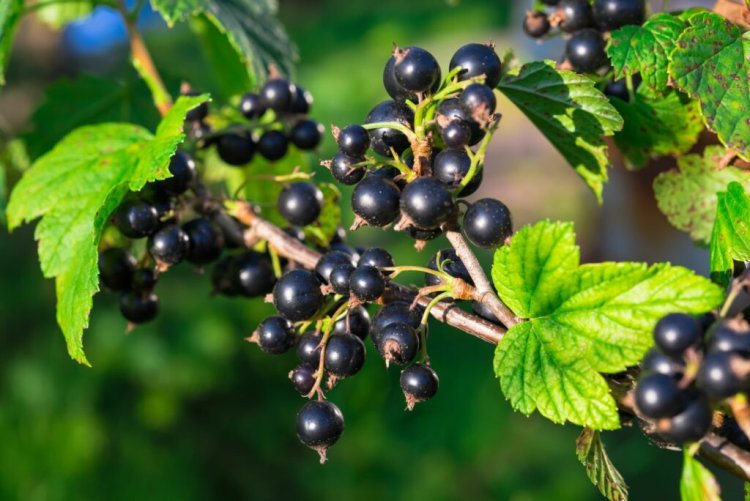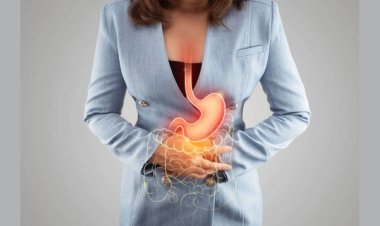Benefits of Blackcurrants
In order to reap the health benefits of blackcurrants, they must be consumed daily. However, they should only be consumed in the recommended quantities

Benefits of Blackcurrants
Introduction
Blackcurrant (Ribes nigrum) is a fruit that is cultivated throughout the globe, primarily in Europe and Asia. This plant is available in numerous varieties, including white currant, red currant, and pink currant, as it belongs to the Gooseberry family. During the summer, the shrub produces fruit, which, once mature, transforms into glossy, purple berries that are edible and useful for cooking, creating beverages, and herbal medication. Due to the presence of high levels of tannins in them, blackcurrants have a robust, sour flavor. The berries are nutrient-rich, contain phytonutrients, vitamins, essential fatty acids, and minerals, and have the highest antioxidant value when consumed desiccated.
Here are defining Benefits of Blackcurrants
Nutritional Value of Blackcurrant:
Listed below is the nutritional value of 1 cup / 112 gms of blackcurrants:

| Energy | 71 Kcal |
| Carbohydrates | 17.23 g |
| Protein | 1.57 g |
| Water | 91.8 g |
| Total Fat | 0.46 g |
| Calcium | 62 mg |
| Iron | 1.72 mg |
| Zinc | 0.3 mg |
| Copper | 0.096 mg |
| Magnesium | 27 mg |
| Phosphorus | 66 mg |
| Potassium | 361 mg |
| Sodium | 2 mg |
| Vitamin C | 202.7 mg |
| Vitamin A | 258 IU |
| Vitamin E | 1.12 mg |
| Vitamin B-6 | 0.074 mg |
| Thiamin | 0.056 mg |
| Riboflavin | 0.056 mg |
| Niacin | 0.336 mg |
Properties of Blackcurrant:
Blackcurrants are known and widely consumed for the following health benefits-
- It has high vitamin C content and is a powerful antioxidant
- It may have anti-inflammatory properties
- It may help strengthen the immune system
- It may have antimicrobial, antiviral, and antiseptic potential
- It may have anti-cancer effects
- It may aid in healthy digestion
- It may improve brain health and cognitive abilities
- It may boost muscle and bone health
- It may have anti-diabetic effects
- It may promote weight loss
- It may be good for lung health
- It may help improve vision and eye health
- It may help decrease plaque buildup
- It may be good for kidney and liver functioning
- It may be responsible for lowering blood pressure and promoting a healthy heart
- It may be beneficial for skin health
Potential uses of Blackcurrant:
Blackcurrant is a nutritional powerhouse, laden with vitamins and antioxidants, low in cholesterol, and offering numerous health benefits.
Potential use of blackcurrant as an antioxidant:
Blackcurrants contain an abundance of antioxidants, including anthocyanins, which give the berries their dark color and help the body combat free radicals. Anthocyanins in blackcurrants may even inhibit the progression of certain cancers. These antioxidants effectively strengthen the immune system, protecting the body from a variety of infections and viruses. Many heart diseases are induced by oxidative stress, and daily consumption of blackcurrants may enhance overall heart health.
Potential use of blackcurrant for the heart:
Blackcurrants may aid in maintaining cardiovascular health due to their flavonoids and powerful antioxidant properties. Blackcurrants are high in anthocyanins, which lower total cholesterol and LDL levels and raise HDL (healthy) cholesterol levels in the blood. Oxidative stress causes cell injury and cardiac problems; consuming blackcurrants may be beneficial because they have anti-inflammatory properties and significantly reduce arterial pressure. Their magnesium content is also responsible for their heart health benefits. Heart conditions are extremely severe and require prompt diagnosis. Examine yourself periodically by a physician and, if necessary, seek medical treatment.
Potential use of blackcurrant in diabetes management:
High levels of manganese, an essential mineral that may help modulate blood sugar levels, are found in blackcurrants. Blackcurrant phytochemicals may enhance insulin sensitivity, whereas anthocyanins inhibit the activity of carbohydrate-metabolizing enzymes and delay the rapid decomposition of carbohydrates to regulate blood glucose levels. However, further research is required to determine the potential benefits of blackcurrant, and diabetics must heed the advice of a qualified physician.
Potential use of blackcurrant for the liver:
Blackcurrants are abundant in polyphenols and may protect structural lipids and proteins effectively. Blackcurrants are not a reliable treatment for liver disease, but they may promote healthy liver function.
How to Use Blackcurrant?
Blackcurrant can be consumed in various forms, such as:
- Fresh Fruit
- Dry Fruit
- Blackcurrant teas and infusions
- Desserts
- Puddings
- Jams
- Jellies
- Syrups
- Smoothies
- Savoury dishes
- Yogurt
- Mojitos
- Alcoholic beverages
- Blackcurrant seed oil
Blackcurrants are flavorful, can be consumed in a variety of ways, and are used in numerous sweet and savory dishes. By adding sugar or honey, they can be made sweeter and served as desserts. Additionally, they are used to create preserves and syrups. Blackcurrant seed oil is rich in omega-3 and omega-6 fatty acids and is effective for arthritis when used as a base or carrier oil in medicinal preparations. Due to the oil's anti-aging and anti-inflammatory benefits, it is also used in the formulation of skin care products. It helps repair tissue damage, works marvels on acne and eczema, hydrates skin, stimulates hair growth, and nourishes and beautifies nails.
Before consuming any herbal supplements, it is essential to consult a licensed physician. Never discontinue or replace an ongoing medication with an ayurvedic or medicinal supplement without first consulting a licensed physician.
Side Effects of Blackcurrants:
Blackcurrants are beneficial to your health and are safe when consumed in moderation.
- Blackcurrant allergies are uncommon, but if you are sensitive to apricots, raspberries, or pollen, you may also be allergic to blackcurrants. Consult a physician if you experience food allergy symptoms such as rashes, mouth irritation, or nausea.
- Blackcurrants inhibit the coagulation of blood. People taking blood-thinning medications should not ingest them or their oil prior to surgery. In individuals with bleeding disorders, blackcurrant seed oil increases the risk of hemorrhage.
- If you have hypertension or are taking blood pressure medication, you should avoid consuming blackcurrants.
- They contain a very high concentration of vitamin C, which, if not assimilated, can cause gastrointestinal problems and contribute to the formation of renal stones.
Before incorporating blackcurrants into your diet, you should always consult your doctor.
Precautions to Take With Blackcurrants:
In order to maintain a healthy diet, blackcurrants should always be ingested in moderation. Any excess consumption will lead to soft stools, moderate diarrhea, and intestinal flatulence. Before consuming blackcurrants, women who are expectant and/or breastfeeding should consult their doctor.
Always conduct a swab test prior to applying blackcurrant seed oil to the epidermis or hair. One must avoid combining blackcurrant seed oil with anticoagulant medications and discuss the benefits and risks with the doctor prior to use.
Also read: 11 Unbelievable Benefits Benefits Of Gardening
Frequently Asked Questions:
Q1. Is it safe to eat blackcurrants every day?
Yes, in order to reap the health benefits of blackcurrants, they must be consumed daily. However, they should only be consumed in the recommended quantities, as exceeding the daily intake may result in adverse effects.
Q2. Can pregnant women eat blackcurrants?
Yes, consuming blackcurrants during pregnancy is advantageous, as it provides vitamins, antioxidants, minerals, and many other essential nutrients for fetal and maternal development. To be secure, however, you should consult a physician.
Q3. Do blackcurrants aid in weight loss?
Blackcurrants can help you feel satisfied for an extended period of time. These are a healthful option for those on a regimen for weight management. More research and studies are being conducted in order to comprehend their entire potential.
Q4. Can blackcurrants be eaten before or after working out?
Yes, you may consume blackcurrants prior to exercise, as they provide adequate energy and may help you reach your fitness objectives more quickly. You may also consume blackcurrants after exercise, as they promote blood flow.
Q5. Do blackcurrants have high vitamin C content?
Yes, blackcurrants have four times the vitamin C content of oranges.












